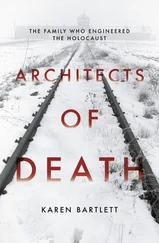C. Harris - Who Buries the Dead
Здесь есть возможность читать онлайн «C. Harris - Who Buries the Dead» весь текст электронной книги совершенно бесплатно (целиком полную версию без сокращений). В некоторых случаях можно слушать аудио, скачать через торрент в формате fb2 и присутствует краткое содержание. Год выпуска: 2015, Издательство: Penguin Publishing Group, Жанр: Исторический детектив, на английском языке. Описание произведения, (предисловие) а так же отзывы посетителей доступны на портале библиотеки ЛибКат.
- Название:Who Buries the Dead
- Автор:
- Издательство:Penguin Publishing Group
- Жанр:
- Год:2015
- ISBN:нет данных
- Рейтинг книги:4 / 5. Голосов: 1
-
Избранное:Добавить в избранное
- Отзывы:
-
Ваша оценка:
- 80
- 1
- 2
- 3
- 4
- 5
Who Buries the Dead: краткое содержание, описание и аннотация
Предлагаем к чтению аннотацию, описание, краткое содержание или предисловие (зависит от того, что написал сам автор книги «Who Buries the Dead»). Если вы не нашли необходимую информацию о книге — напишите в комментариях, мы постараемся отыскать её.
Who Buries the Dead — читать онлайн бесплатно полную книгу (весь текст) целиком
Ниже представлен текст книги, разбитый по страницам. Система сохранения места последней прочитанной страницы, позволяет с удобством читать онлайн бесплатно книгу «Who Buries the Dead», без необходимости каждый раз заново искать на чём Вы остановились. Поставьте закладку, и сможете в любой момент перейти на страницу, на которой закончили чтение.
Интервал:
Закладка:
“I’m afraid not.”
Knightly pushed out a long, pained sigh. “And now Dr. Sterling is dead too. It’s beyond ghastly.”
“You were acquainted with Sterling?”
Knightly shrugged. “Jamaica is a very small island.”
Sebastian stared at him. “Are you saying Douglas Sterling spent time in Jamaica?”
“Yes. You didn’t know?”
“When?”
“He practiced there as a young man. And he still goes out every few years to visit a daughter who married a merchant in Kingston.” Knightly paused. “Although I suppose I should say he used to go .”
“That’s a long voyage for a man of his age.”
“It was, yes. But he always claimed the sea air was good for him-that it more than made up for the fatigue of the journey. Said it was the London fog that was going to kill him.” Knightly shook his head sadly at the implications of his own words.
“When was Sterling last in Jamaica? Do you know?”
“Recently, I believe. Although I couldn’t say precisely when.”
“During Sinclair Oliphant’s period as governor?”
“It must have been, I suppose.” Knightly drew up on the footpath before the Stevens. “You think that’s significant?”
“It may be. I don’t know.”
Knightly nodded, then glanced surreptitiously at his watch as a nearby clock tower chimed the quarter hour. “Would you care to join me for dinner?”
“Thank you, but I’m afraid I have a previous engagement.”
It was only partially a lie. Sebastian’s engagement was with Sinclair Oliphant.
The colonel just didn’t know about it yet.
Dressed now in satin knee breeches and an evening coat, with a chapeaux bras and a silver-headed walking stick that concealed a sharp, deadly dagger, Sebastian trolled the pleasure grounds of London’s haut ton: the gentlemen’s clubs and gaming rooms and glittering, elegant ballrooms that provided evening entertainment to the city’s most bored, most pampered residents. He finally came upon his quarry at the highly fashionable ball being given by Lady Davenport.
Lord Oliphant and his slim, blond wife were in her ladyship’s supper room enjoying their hostess’s lemon ices. Lady Oliphant was younger than her husband, probably no more than twenty-five or thirty. One of six daughters of an impoverished squire, she was an attractive woman, although her face and nose were considered too long, her mouth too small and prim, her chin too pointed, for her to be acknowledged a beauty. When she first married Oliphant, he had been a mere Army officer, destined for a life in that second tier reserved for younger sons. But the death of his childless elder brother had changed all that, bringing Oliphant a title, estate, wealth, and status. Watching her, Sebastian found himself wondering if she knew of the things her husband had done in the war, before he’d become Lord Oliphant and governor of Jamaica. Would she care if she did?
For some reason he could not have explained, Sebastian found himself doubting it.
He pushed away from the doorframe and walked toward them. He knew exactly when Oliphant became aware of his presence, knew it by the subtle shifting of the man’s posture and the faint glitter that leapt into his eyes. But Oliphant continued eating his ice with an assumption of insouciance.
Or perhaps it wasn’t an assumption, Sebastian thought, watching him. In Sebastian’s experience, men like Oliphant were made fundamentally different from their fellow beings. It was as if they’d been born immune not only to empathy and compassion, but to worry and self-doubt and fear as well.
“Again?” said Oliphant when Sebastian drew up, the groaning expanse of Lady Davenport’s heavily laden supper table between them.
“Again.” He tightened his grip on the head of his sword stick. “I’m told you knew Dr. Douglas Sterling.”
“I did, yes.” Oliphant’s eyelids drooped slightly as he sucked on a spoonful of lemon ice. “As did any number of other people, I’m sure.”
“True. But that number narrows considerably when one eliminates those who did not also know Stanley Preston.”
Lady Oliphant paused with her spoon hovering above her lemon ice, her entire being stiff with outrage. “Surely you’re not suggesting my husband has anything to do with these dreadful murders?”
“Yes,” said Sebastian.
Her long, thin nose quivered with scorn. “The very idea is beyond preposterous. A lord of the realm!”
“Did your husband ever tell you about Santa Iria?” he asked, watching her closely.
She gave him a blank look. “What?”
“Santa Iria. It is-or perhaps I should say, was-a convent in the mountains of Portugal. A place of refuge for simple, devout women and the war orphans they cared for.”
She looked uninterested. “And what has this to do with anything?”
“The abbess of Santa Iria was the daughter of a local grandee-a prominent landowner who was reluctant to be seen taking sides against the French for fear his people would suffer reprisals should the British be defeated. So your husband came up with a way to persuade him.”
She threw Oliphant an admiring smile. “Sinclair is very inventive.”
Oliphant bowed but said nothing.
“He is that,” agreed Sebastian. “He sent out a courier carrying false dispatches-dispatches suggesting the abbess of Santa Iria was acting as a spy for the British. Then he tipped off a French troop in the area, so that they were able to capture the courier. Needless to say, the French believed the dispatches to be genuine.”
“That was clever,” said Lady Oliphant.
“The courier didn’t think so.”
She shrugged.
Oliphant sucked on another spoonful of ice. “Do finish your story. I suspect my wife will enjoy it.”
She looked at Sebastian expectantly.
He said, “The French attacked Santa Iria at dawn. The convent was burned, the women and children all killed. Not even the smallest of babes were spared. The abbess-who was no British spy but an innocent nun-was repeatedly violated and tortured in an effort to make her talk. She died in agony.”
“And her father? The dithering grandee? Was he persuaded by this French outrage to finally turn against Napoléon?”
“Actually, no. He was so horrified by what had been done that he suffered a seizure and died.”
“Hmm. Pity. Still, you must admit it was an ingenious plan.”
“Dozens of innocent women and children died, needlessly.”
“Yes. The French have perpetrated many such outrages across Europe. Which is why, with the grace of God, they will soon be defeated.”
A gleam of amusement shone in her husband’s light blue eyes.
Sebastian said, “I don’t think God had anything to do with what happened at Santa Iria.”
“The good Lord works in mysterious ways.”
Sebastian studied her smug, self-satisfied face. He’d often wondered what sort of woman could be content married to a man like Oliphant.
Now he knew.
Oliphant said, “One of these days, Devlin, you really must move beyond the events of that spring in Portugal. War is war; dreadful things happen. But do you think a London ball is the proper place to be dredging up the gruesome details?”
“When people are still dying-here, in London? Yes.”
“I take it you’re referring to this tiresome matter of Preston?”
“And Sterling.”
Oliphant sighed and handed his empty ice cup to a hovering waiter. “Shall I give you a little hint? Yes; I do believe I shall.”
“Sinclair is always most generous,” said Lady Oliphant.
Oliphant gave a small bow. “You are aware, of course, of the star-crossed love affair between Miss Preston and a certain hussar captain?”
When Sebastian remained silent, Oliphant said, “Of course, Preston and his son did an admirable job of hushing up the elopement six years ago. But somehow, whispers always seem to get about; have you noticed? I tend to blame the servants.”
Читать дальшеИнтервал:
Закладка:
Похожие книги на «Who Buries the Dead»
Представляем Вашему вниманию похожие книги на «Who Buries the Dead» списком для выбора. Мы отобрали схожую по названию и смыслу литературу в надежде предоставить читателям больше вариантов отыскать новые, интересные, ещё непрочитанные произведения.
Обсуждение, отзывы о книге «Who Buries the Dead» и просто собственные мнения читателей. Оставьте ваши комментарии, напишите, что Вы думаете о произведении, его смысле или главных героях. Укажите что конкретно понравилось, а что нет, и почему Вы так считаете.












